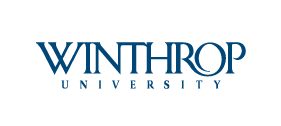Lake Baikal’s “Pure” Water as a Marketing Meme.
Location
DIGS 220
Discussant
Peter Judge
Panel
Water in the World: The Social, Economic, and the Sacred
Category
Global
Start Date
7-11-2015 10:15 AM
End Date
7-11-2015 11:15 AM
Description
Lake Baikal has long been a symbol of the environmental movement and in the decades since the collapse of the Soviet Union, it has also become a powerful marketing meme. Advertising under the Soviet regime was nearly non-existent. In fact, it was almost unnecessary given that all enterprise was state run and distribution channels were managed centrally in Moscow. Nevertheless, conspicuous consumption was an important source of indentity-making. Contraband Western products aside, certain products from Eastern Europe and the Soviet Union we valued for their quality, appearance, or difficulty to obtain, creating a kind of hierarchy of taste within this world without advertising. Since the collapse of socialism, the relationship of product to place plays an important role in advertising consumables.
In this paper, I examine how Lake Baikal is used in advertising to lend qualities of purity and healthfulness to beverages promoted by local bottling companies. I use Baikalfarm as my primary case study. Location is an important factor in advertising in the West in large part because of the local food movement, but the case of Lake Baikal is quite different. Companies are sourcing water from Lake Baikal for their products not because it’s “local,” but specifically because it is Lake Baikal water. In addition to the scientific and ecological importance of Lake Baikal regionally and nationally, the lake is considered sacred. Using Lake Baikal in the sourcing of water and in the advertising of the finished products simultaneously builds on memes of Baikal as pure, Baikal as sentient, and Baikal as threatened. I explore the history of the use of Lake Baikal in manufacturing and food production and explore how the sacred and the scientific overlap in the production of marketing memes around products that use waters “from the depths of Lake Baikal.”
Lake Baikal’s “Pure” Water as a Marketing Meme.
DIGS 220
Lake Baikal has long been a symbol of the environmental movement and in the decades since the collapse of the Soviet Union, it has also become a powerful marketing meme. Advertising under the Soviet regime was nearly non-existent. In fact, it was almost unnecessary given that all enterprise was state run and distribution channels were managed centrally in Moscow. Nevertheless, conspicuous consumption was an important source of indentity-making. Contraband Western products aside, certain products from Eastern Europe and the Soviet Union we valued for their quality, appearance, or difficulty to obtain, creating a kind of hierarchy of taste within this world without advertising. Since the collapse of socialism, the relationship of product to place plays an important role in advertising consumables.
In this paper, I examine how Lake Baikal is used in advertising to lend qualities of purity and healthfulness to beverages promoted by local bottling companies. I use Baikalfarm as my primary case study. Location is an important factor in advertising in the West in large part because of the local food movement, but the case of Lake Baikal is quite different. Companies are sourcing water from Lake Baikal for their products not because it’s “local,” but specifically because it is Lake Baikal water. In addition to the scientific and ecological importance of Lake Baikal regionally and nationally, the lake is considered sacred. Using Lake Baikal in the sourcing of water and in the advertising of the finished products simultaneously builds on memes of Baikal as pure, Baikal as sentient, and Baikal as threatened. I explore the history of the use of Lake Baikal in manufacturing and food production and explore how the sacred and the scientific overlap in the production of marketing memes around products that use waters “from the depths of Lake Baikal.”
